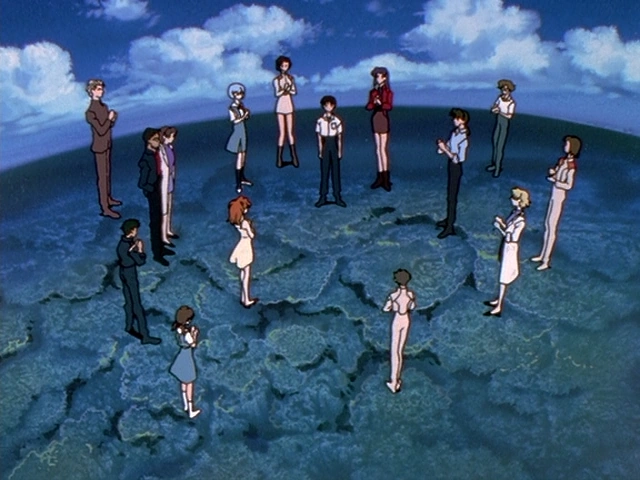Twitter is the worst global social network—except for all the others
It seems "bashing Twitter" is the new countercultural trend.
I grew up in Spain in the 90s, and many people either don't remember or nostalgically idealize the credibility of traditional media.
Like many 90s kids, I discovered role-playing games, heavy metal, Japanese anime, and video games. It just so happened that my hobbies turned out to be The Four Horsemen of the Apocalypse. The press and politicians constantly vilified these harmless activities. They didn't understand them, and they didn't want to. It was an easy scapegoat.
Here's a twelve-act essay to prevent us from forgetting how bad we had it and why there is not a better alternative to Twitter.
1. The Dragon Ball Scandal
In the 90s, a heated debate erupted over the airing of Dragon Ball on TV3, the Catalan national TV. I'm pretty sure this controversy may have happened in all countries where this anime was aired.
Politicians threatened to pull the show off the air, claiming it would turn children into violent delinquents.
Today, Dragon Ball is one of the tamest shows on TV and streaming platforms.

Above: Catalan MP Josep Antoni Duran i Lleida denounces violent language in Dragon Ball Z
2. My parents would rather have me drinking than playing Role-Playing Games
At 16, I had to lie to my parents to play RPGs. I'd tell them I was off drinking beer with friends (which, back then, was legal).
Why? Because they got their information from TV and newspapers like everyone else. And what they read was that RPGs were satanic rituals and that "playing RPGs" meant murdering people.
My parents trusted me, always had. But they suffered cognitive dissonance: when your child and every major media outlet say contradictory things, who do you believe?
It's unthinkable to believe that your kid may be right while the entire press is lying.

Above: Spanish leading newspaper El País writes about "the role-playing murderer"
3. Then Came Video Games
By the time video games became the next moral panic, I was in university, drawing comic strips for fun. I landed a gig drawing for the youth supplement of the Avui Catalan newspaper.
This was the first strip I submitted. They published it, but needless to say, they didn't call me back.

First panel: "Today, on [parody name of a real gossip TV magazine], we will see how [parody name of a real celabrity]'s kids insult each other on her birthday". Below: "True story". Second panel: "Referee, S.O.B [spelled out]". Third panel: "You are a useless wh- [spelled out]". Fourth panel: "It has been widely proven that kids are violent due to video games". In the background: "Psychology congress"
4. Finally, Heavy Metal
Whenever a drunken brawl occurred, and heavy metal was involved in any shape or form, the music was inevitably blamed for the chaos.
Thankfully, I've found press clippings from the time because younger generations might not believe these stories otherwise.

Above: "Young man dies from a stabbing during the Scorpions concert"
5. My newspaper experiment
In university, I decided to read every newspaper at the kiosk to form my own opinion across the political spectrum. For months, I bought the same newspaper daily for an entire week, moving on to the next title each Monday.
The kiosk owner joked when I bought La Razón and ABC, at the time openly right-wing outlets. When I explained my experiment, he was stunned! "Most people stick to their one preferred newspaper", he said.
Then, I discovered all media has biases, not just ones from "the other side."
But the critical revelation was this: every newspaper had original investigations, crucial for holding power accountable. Yet these investigations not only upset the powerful—they didn't interest people at all!
6. The media entered a death spiral which has been their demise
Because, in truth, what sells is blood and fury on the front page. Newspapers must exaggerate—or outright lie—to survive.
Yes, ideology plays a role in each outlet's bias. But the commercial aspect is key: readers crave outrage, the demonization of "the other side," forcing every action by "them" to be portrayed as villainous.
Otherwise, no one will buy the press or watches the news.
The fanaticism turns into a death spiral: you need unconditional fanatics to make your outlet sustainable, and therefore, you must create them by bending the truth.
7. The big realization: they all lied
As I studied, grew, and matured, I became an expert in some areas, mainly tech-related.
I then discovered something shocking: every article about topics I deeply understood was sensationalist, ignorant, or outright propaganda.
This led to a painful realization: If the media lies about subjects I understand, will they also lie about the ones I don't?
The answer, as I very painfully learned, was "yes."
I stopped consuming traditional media entirely—newspapers, TV news, even online news sites. What began as an exciting project ended in utter disillusionment with journalism.
8. The media denies what my eyes see
In October 2017, in Catalonia, I read articles describing events I had witnessed firsthand. Since I don't want to derail the main argument from this article, and turn it into a political debate about those events, I will summarize all my thoughts during that painful period as: What was published in the press didn't match reality.
Family members who lived in a different region called to check on me, trying to understand the situation. When I explained, they didn't believe me. How could they? I was once again the kid contradicting the entire media.
For them, accepting my version, even though it was firsthand, candid, and independent, would mean acknowledging the media was lying. That's like discovering you're living in the Matrix. Most minds simply can't process it. They kept believing the lies. What a shame.
9. And then came Twitter
Twitter changed everything.
What began as a toy-like social network became the world's leading source of firsthand information.
Yes, it has negatives, but today's not the day to list them. We know them all.
But on Twitter, you can read:
- Experts
- Who are independent
- Recounting events they are experiencing first hand
- Worldwide
- At a massive scale
And, on the same Twitter, you can find their opponents:
- Disproving or debating them
- With community notes which are displayed at the same level as the OP
- Which rely on third party sources
This only happens on Twitter. Twitter really is the planet's public forum. There is nothing alike. We may not get another one. And it infuriates traditional media, because they lose control of the narrative.
10. Twitter is a reflection of democracy, the media is a reflection of the oligarchy
I've lived through all this. And I don't believe the quality of information in that old world was better than today's.
So, it fascinates me when people yearn for a return to those times, especially when these people are progressives, not reactionaries.
Twitter isn't perfect because people aren't perfect. There are trolls, toxicity, and extremists because the world has trolls, toxicity, and extremists.
Are you guys new? Before Twitter we had web forums, and before that, newsgroups. Remember "Eternal September"? Remember "Don't feed the troll"?
Such is life. If you believe a world without toxicity is possible, go watch episode 26 of Neon Genesis Evangelion. "Congratulations, Shinji!"
The only way to live in an world which is absolutely catered to your liking is to exist in a liminal white space with nothing else.

Let's be clear: the media leave Twitter because they are losing the battle.
Don't get me wrong. Twitter might actually disappear, either as an effect of this boycott, due to some technical catastrophe, or something like that. That's entirely possible and beyond our control.
But if it does, let's not kid ourselves: the alternative isn't Bluesky, Threads, or Mastodon. Nor are 15-second-video platforms that rot your brain; but that is a topic for another day.
Twitter isn't just a website or app. It's a community. And without the website, the community will dissolve.

Something new may arise. But the full network will not migrate there, and therefore, it won't play the global role Twitter does today.
Meanwhile, the media will get back control of the narrative.
The alternative to Twitter isn't "a Twitter without trolls." That doesn't exist. The alternative is the media oligopoly: —articles denying events you've experienced.
Let's hope that Twitter does not disappear, then. I don't want to go back to that world.
11. Twitter was indeed better in the past, but it was a mirage
Why can't we have "a Twitter without trolls", then?
Twitter was nicer before Musk, it's hard to disagree with that argument. He gutted moderation, reports go nowhere, and bot spam has skyrocketed.
The problem is that, before Elon, Twitter wasn't sustainable. That "nicer Twitter" existed as a short flash of light, but it would not have lived for long. Musk tried to save Twitter, obviously not out of his goodwill —again, not the point of this article—, at great cost for everybody and for many meanings of the word "cost".
This is the actual point: would you pay a subscription to cover for moderator salaries? Because if you want a Twitter without trolls, you have to pay for moderators. I do pay for Twitter, not because I support Musk —I don't—, rather because I like Twitter so much in spite of me supporting Musk through Twitter.
If you disliking him personally doesn't allow you to support his company, which I think is a perfectly reasonable stance, then leave Twitter.
Either you:
- Do not use Twitter, or
- Use Twitter for free, but do not complain about the lack of moderation, or
- Pay so Twitter can afford moderators.
If you plan on having your cake and eating it too, you're either clueless as to how things work, or a hypocrite.
12. The good news: you can improve your Twitter experience
If you want to stay on Twitter, you can indeed improve your experience.
Do you want to stop seeing nazis, trolls and naggers? It's extremely easy. Follow this three-step guide:
Stop engaging with nazis, trolls and naggers. The algorithm learns from your interactions. If you click on hateful posts, Twitter shows you more hate. It's like Instagram: the ads reflect your preferences, whether you like it or not.
Clean up your timeline. Click here and use the mute/block settings. I've done it, and my Twitter is fantastic.
From time to time, the algorithm will try to show you different content. If something irrelevant or disgusting pops up, click the three dots and mark it as "not interested" or mute the author.
Because, you know what? You can even mute Elon. I know I have. I just dislike what he posts. No hard feelings. If you thought that the point of this essay was to defend Musk, I hope this last argument convinced you otherwise.

The point of this essay is to defend Twitter, because if you give it an honest thought, not having Twitter is a loss for society. Twitter is irreplaceable. I wish it wasn't. I wish we would all magically move to some utopic network without annoying people. But that's not how things work, Shinji. We'd go back to my parents believing that role playing games create murderers.
One point I will concede to the critics: Twitter is the worst global social network—except for all the others.
This is an english version of this twitter thread
You may contribute to the discussion on Hacker News
Famous public figure in tech suffers the consequences for asshole-ish behavior
This last month, a very famous computer guy who regularly appears in public and has amassed a cultish-like following has been forced to step down due to pressure from journalists.
Let's make a list of all the unacceptable behaviours of Computer Guy:
Living in his office and disgusting smell
He is not really homeless, but Computer Guy used to sleep in his office.
Coworkers and friends reported that he reeked and would avoid contact with him.
Sexually harassing employees
It has been reported, even in video, that Computer Guy made inappropriate sexual utterances to their colleagues.
Of course, Computer Guy denied it.
Drug intake
Computer Guy is a known hippie, I mean, just look at his appearance.
He is not ashamed to admit that he has taken illegal drugs and that they are an important part of his life.
Psychological abuse to women
Not many people know this, but Computer Guy has a daughter which he denied for a long time.
Computer Guy basically abandoned his former partner who was pregnant with their daughter, denied her alimony, and even abused the child psychologically when she was 9.
Keeping payments from group projects for himself
In one of his projects, Computer Guy profited more that he had earned by lying to colleagues. Instead of fairly distributing the money from a project, he decided to take most of it for himself.
In a similar case, he denied fair compensation to an old friend of his.
Bad temper
All these examples can be summarized as: Computer Guy is an asshole who must be taken down.
Even though Computer Guy did nothing technically illegal, being such a big asshole must not be acceptable in our society and the right thing to do is to pressure him to resign from his public positions.
Since mobs don't read the news, only the headlines, and I don't want any association with any of the parties in this drama, I think I must write the non-snarky interpretation of the events.
Of course, the headlines above are about Steve Jobs, not Richard Stallman.
I only had one goal with this piece: to reflect on the double standards in society.
Being an asshole is acceptable if you are a respected powerful businessman. You are portrayed as a quirky millionaire. However, it is not acceptable if you're a contrarian weird hippie. You are portrayed as a disgusting creep.
I obviously have no interest or authority to defend or justify their actions. They're adults and their behavior is their own. Screw their asshole-ism. They should have been better people. Stallman is a stubborn asshole, Jobs was an even bigger stubborn asshole.
The truth is, there is a strong correlation between being a powerful public figure and being a stubborn asshole. This is because after some point, non-assholes quit the race because they are not willing to pay the toll it takes to be at the top. That is unfortunate, and we should definitely push for respecful leaders.
Why did two independent journalists take Stallman down, and not Jobs, or any of the other assholes in the world?
Probably, because they could.
It's their right to free speech, and ultimately it was a consequence of Stallman's actions. And I can't reflect on whether it's fair or good that Stallman is forced to step down, because I'm not smart enough to foresee the positive or negative consequences. So maybe after a few months we all realize it was the right thing to do, and end this discussion once and for all.
However, one thing is still true, again, the only point that should be taken from this article: to hell with double standards when representing public figures.
Not that it matters for this article, and it's outside the scope of my point, but I want to share my personal vision on Stallman and Jobs. The thing is, this was a difficult article to write. They are both people who I strongly admire and have had a great influence in my life.
Reading Stallman's essays are what got me into Free Software. I have attended his conferences twice and his brave stance on freedom and privacy is flawless and admirable. I have a small laptop that Stallman signed and many of his books. He has constantly fought for the rights of the people against corporations. I hope he keeps doing it.
The world is a better place thanks to Stallman.
Jobs was an inspiration. I own most books about him, an Apple "Think Different" poster is hanging at my office, and I treasure the issue Time released after his death. He was a genius, a visionary, he basically invented consumer computers and smartphones. I do not doubt that the contributions of Woz and other people at Apple were instrumental, but he was the mastermind behind the strategy. What Jobs achieved with his work is beyond belief and 100% worth of praise.
The world is a better place thanks to Jobs.
If you want more context about the actual facts, I wrote about the news a week ago.
Tags: news
Three take aways to understand Cloudflare's apocalyptic-proportions mess
It turns out that Cloudflare's proxies have been dumping uninitialized memory that contains plain HTTPS content for an indeterminate amount of time. If you're not familiar with the topic, let me summarize it: this is the worst crypto news in the last 10 years.
As usual, I suggest you read the HN comments to understand the scandalous magnitude of the bug.
If you don't see this as a news-opening piece on TV it only confirms that journalists know nothing about tech.
How bad is it, really? Let's see
I'm finding private messages from major dating sites, full messages from a well-known chat service, online password manager data, frames from adult video sites, hotel bookings. We're talking full HTTPS requests, client IP addresses, full responses, cookies, passwords, keys, data, everything
If the bad guys didn't find the bug before Tavis, you may be on the clear. However, as usual in crypto, you must assume that any data you submitted through a Cloudflare HTTPS proxy has been compromised.
Three take aways
A first take away, crypto may be mathematically perfect but humans err and the implementations are not. Just because something is using strong crypto doesn't mean it's immune to bugs.
A second take away, MITMing the entire Internet doesn't sound so compelling when you put it that way. Sorry to be that guy, but this only confirms that the centralization of the Internet by big companies is a bad idea.
A third take away, change all your passwords. Yep. It's really that bad. Your passwords and private requests may be stored somewhere, on a proxy or on a malicious actor's servers.
Well, at least change your banking ones, important services like email, and master passwords on password managers -- you're using one, right? RIGHT?
You can't get back any personal info that got leaked but at least you can try to minimize the aftershock.
Update: here is a provisional list of affected services.
Download the full list, export your password manager data
into a csv file, and compare both files by using grep -f sorted_unique_cf.txt your_passwords.csv.
Afterwards, check the list of potentially affected iOS apps
Let me conclude by saying that unless you were the victim of a targeted attack it's improbable that this bug is going to affect you at all. However, that small probability is still there. Your private information may be cached somewhere or stored on a hacker's server, waiting to be organized and leaked with a flashy slogan.
I'm really sorry about the overly dramatic post, but this time it's for real.
Tags: security, internet, news
Spanish media just shot themselves in the foot -- or maybe in the head
In Spain we have an old proverb, La avaricia rompe el saco. Literally "greed bursts the sack"; it means that if you fill a purse with too many coins it will break and you will end up with none.
This week, the Spanish Congress passed a law with two main goals:
- Ban torrenting sites, i.e. that is link-only sites (not content hosts), which is a totally different topic.
- Make social aggregators pay media publishers for the use of news excerpts.
More details can be found on this Gizmodo article
If this weren't so serious I'd say that news lobbies pressing against the right to quote, you know, the one their business is based on, is ironic.
But this is so outrageously hypocritical that it's not ironic, it's immoral and vomitive. Disgusting. Greedy to the extreme. This is a capital crime against ethics.
So why did they just do that?
Last year, Google was forced to pay French publishers for use of their content. Spanish publisher lobby AEDE (lack of link intended) saw here a huge opportunity: let's do the same and get free money from Google.
Google is so big that's it's an easy target. Demagogy is so simple; Google is a tech giant that does fiscal engineering to avoid paying taxes and profits from our content. Yes, that's true. But Google does exactly what these publishers do: curate what others say and provide citations to strengthen and validate their job.
But then, Google's natural reaction would have been, "You don't want my traffic? Wish granted! Next time, be careful what you wish". However, AEDE had anticipated this, so with the new law content providers can't opt out by not linking to AEDE's affiliated media. F*ck off genie, we wished for infinite wishes!
It's so effortless to lobby in a corrupt and manipulated environment where politicians don't even know what a link is.
But wait, there's more.
Once you start considering the implications of having to pay to hyperlink, things get worse. A study conducted by Coalición Prointernet, a lobby against this law, states the obvious:
- It has not been proven that content aggregation limits the editor's earnings. Of course; it's the opposite, it actually drives them more traffic—300M yearly visits, according to an admin of one of those sites.
- There is no basis to establish an inalienable compensation towards media editors and, if it were any, this new legislation is not the best way to go.
- The new law reduces legal security for Spanish internet companies.
- Media aggregation is necessary and positive from a "freedom of speech" standpoint. Unavailability of aggregators can drive small publishers to extinction and leave users without an important tool to diversify their media consumption.
Please read and think about the last point again, because it is very, very important.
Let's summarize what is happening here:
Big media editors AEDE, most of which pro-government, in collusion with the corrupt Spanish politicians have managed a masterstroke which they think will:
- Get them free money
- Destroy the discoverability of smaller media competitors, usually critical with the government
- Hinder the future of Spanish internet tech business, their main competitor
- Get more exposure, since readers won't have access to media agreggation and will resort to reading just one or two outlets
In reality, what is likely to happen is:
- Google will close Google News Spain, no big problem
- Spanish media aggregators will move their business abroad and won't contribute taxes to the country
- Tech entrepreneurs will realize that Spain is a shitty country to invest money on
- Without Google, the aggregators, and thanks to the increasing user boycott to AEDE media, those editors will lose traffic and money.
This is so, so sad.
It is clear that traditional media companies are suffering because of the internet revolution and need to fight in some way. However, they are cutting their own nose to spite the face. And, in the way, they are denying others a right, not a banal one, but the right to quote, which news business is built on.
I honestly think that traditional media is absolutely necessary even today. They are the ones who report, research, discover, analyze and interpret what's happening in the world. Specially in Spain, where we don't have these modern US internet-only media companies which don't just feast on press releases but do real journalism.
This is not a cry against traditional media. People, most of all, need them. But people also need aggregators to contrast different views on news. Aggregators need media because it's impossible to talk about news without a headline and an excerpt to reveal what's going on. And media, most of all, needs aggregators and people to survive in today's world.
Now the law has been passed. Though it needs to be ratified in the Senate, it is a pantomime because the majorities are the same as in Congress and also Congress has the last word even if the Senate votes against it (take that, Montesquieu!). What will media editors do when they start losing money and realize the harm they have done to themselves, the Government, Spanish media consumers and the Spanish tech industry?
Next time you think somebody is stupid, remember that the Spanish press just got in a war with Google, Facebook and Twitter because they want them to stop linking to their content.
Crazy world we live in, huh?
What's so great about Whatsapp?
Facebook bought Whatsapp for $19B. There has been a lot of discussion on the net since the numbers are crazy. Even for today's standards, where startups are measured in Instagrams or Yahoo!s much like length is measured in football courts, that is a large sum.
To summarize my thoughts on the money; maybe we should start thinking about a new Web 2.0 bubble? Whether $12B in Facebook shares is actually twelve billion dollars cash is left as an exercise for the reader. Smarter people than me defend the acquisition, and I will definitely not argue against that.
So why did Facebook buy Whatsapp? TL;DR: because of what people use it for.
Notwithstanding Line's 350M users, or the hype with Telegram, Facebook went for Whatsapp for a reason, and that is because they are huge outside the US.
I don't think this is an acqui-hire as Whatsapp needs every employee and it wouldn't be a smart move to shut it down while it's #1 with this huge competition. However, Facebook can probably learn a lot from Whatsapp's engineers. Their amazing staff can scale at a ratio of 450M users per 32 engineers. That's 14M users per engineer. But again, this isn't about the people, the risk of Whatsapp being bought by Google, or just their user base.
It is most likely the fact that Whatsapp has more than 300M daily active users, and Facebook could greatly benefit from having all these people's data. Remember what Facebook, and all the other big companies on the net, are. They are advertisers. And all these people using Whatsapp is communicating outside Facebook's network.
Google wants to collect all the world's data, but Facebook wants to know everything about people. Now it will reach an additional 450M that they weren't previously controlling.
What's so special about Whatsapp users? From my experience, Whatsapp is a great mix of Instagram, Twitter, chat and Facebook. It is totally spontaneous, friendly, private, and chaotic. Non-geeks love the ability to send pics, text and audio and let messages scroll to the top. It is so comfortable to use.
But what's more interesting, users communicate intentions, meetings, events. Outside the US, nobody creates Facebook events any more; we create Whatsapp groups. Groups for parties, dinner, quick stuff that's happening and needs immediate action. We use Facebook to discuss what happened —maybe with a cool beach pic— but Whatsapp is all about the immediate future. Plans are made on Whatsapp.
And here goes my conclusion. What could be sweeter for Facebook's advertisers than knowing in advance what people are up to? It's the perfect user data. Remember, next time you create a Whatsapp group for that birthday party, restaurant ads will pop in your Facebook. And I'm not saying that it's a bad thing necessarily.
Tags: news